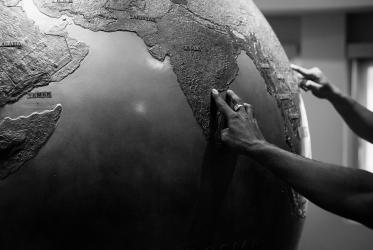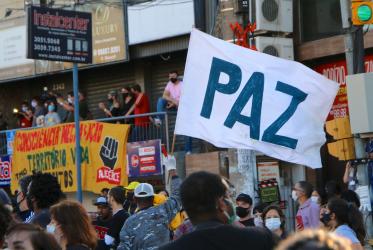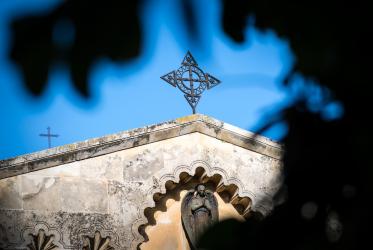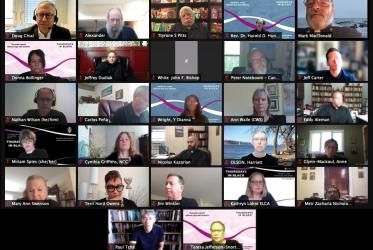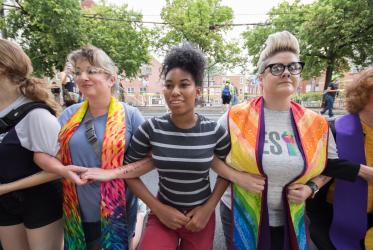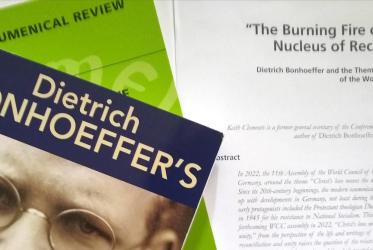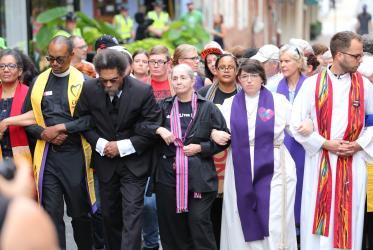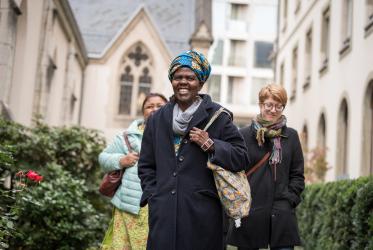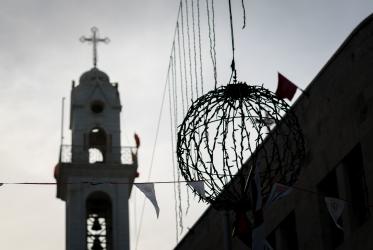Displaying 81 - 100 of 330
17 August 2021
Webinar - Intergenerational conversation will commemorate 50 years of WCC’s interreligious inroads
01 July 2021
https://us02web.zoom.us/webinar/register/WN_dwi_li4JTI6FRzEaqGeqvw
Online event-“Anti-racist in Christ? Ecumenical Christian Repentance, Reflection and Action on Racial Discrimination and Xenophobia.”
14 - 17 June 2021
https://us02web.zoom.us/webinar/register/WN_U6s791s5TPqMZAywAFMdYA
WCC offers prayer during Japanese peace conference
11 March 2021
Rethinking Ecological Relationships in the Anthropocene era
11 - 13 February 2021


